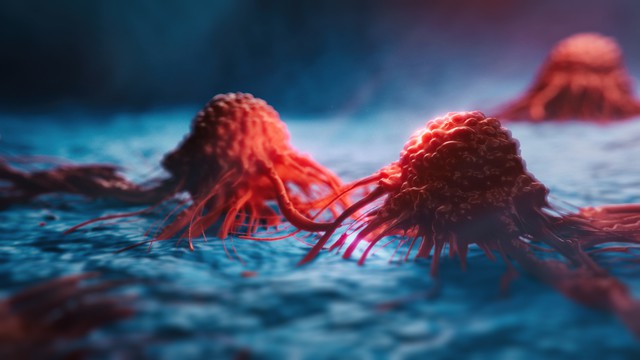Turnstone Biologics kicked off the year with a buyout that brought a tumor-infiltrating lymphocyte (TIL) platform under its roof. Now, it’s banking $80 million from a laundry list of backers to get its leading TIL program, along with its most advanced cancer-killing virus treatment, through the clinic.
Its lead oncolytic, or cancer-killing, virus treatment, RIVAL-01 is in a phase 1/2a study, while its lead TIL treatment, snagged in its acquisition of Myst Therapeutics, is poised to enter the clinic in 2022. Along the way, Turnstone teamed up with Takeda to develop and commercialize RIVAL-01 together, as well as to discover new programs using its oncolytic virus platform.
The company set up shop in 2015 to develop an oncolytic virus platform that could solve the problems that plagued previous efforts in the space. Its treatments are based on its vaccinia virus platform and are designed not just to zero in on tumor cells and kill them, but also to ramp up the immune system to attack the cancer.
Turnstone is one of the companies working with vaccinia, a member of the poxvirus family, while others are developing cancer-killing viruses based on herpes simplex virus (HSV) and adenoviruses.
“These large DNA viruses, whether we’re talking about vaccinia or HSV, that are generally used in the field is they tend to be immune suppressive. They get into the host and try to mute the immune system around them in order to survive,” said Turnstone CEO Sammy Farah, Ph.D. “That’s the opposite of the effect that we want to drive.”
Besides delivering this one-two punch to cancer, Turnstone’s treatments are designed to selectively home in on cancer cells while leaving healthy cells alone, have a large capacity to carry other therapeutics encoded in their DNA and be deliverable systemically or directly into the tumor, as with Amgen’s Imlygic and other oncolytic viruses.
RIVAL-01 carries genetic sequences for the ligand of Flt3, an anti-CTLA4 antibody and the inflammation-promoting cytokine IL-12.
“What happens when the virus gets into a tumor is it starts replicating and becomes a local factory for these other therapeutics,” Farah said.
Though the company started out with cancer-killing viruses, it has long been interested in TILs, which are personalized treatments made from immune cells that can invade and kill cancer cells.
It hopes the Myst assets and technology help get the TIL field from “where it is today to its next step,” Farah said.
Today, TIL treatments have turned up some great data, but it’s been limited to certain cancers, such as melanoma and HPV-driven cancers like cervical cancer, Farah said. These treatments are made using bulk, unselected TILs, which are removed from a patient’s tumor, grown in large numbers in a lab and then given back to the patient to fight cancer. Turnstone and others in the field are going a step further by also selecting the T cells that matter the most from each patient.
“We identify those and focus on expanding and stimulating that population of T cells and using that as your therapeutic. That could result in a much more potent and effective therapy,” Farah said.
Turnstone is developing its viral and TIL treatments as standalone therapies, but the two approaches could be combined for even better results, attacking cancer from two important angles.

